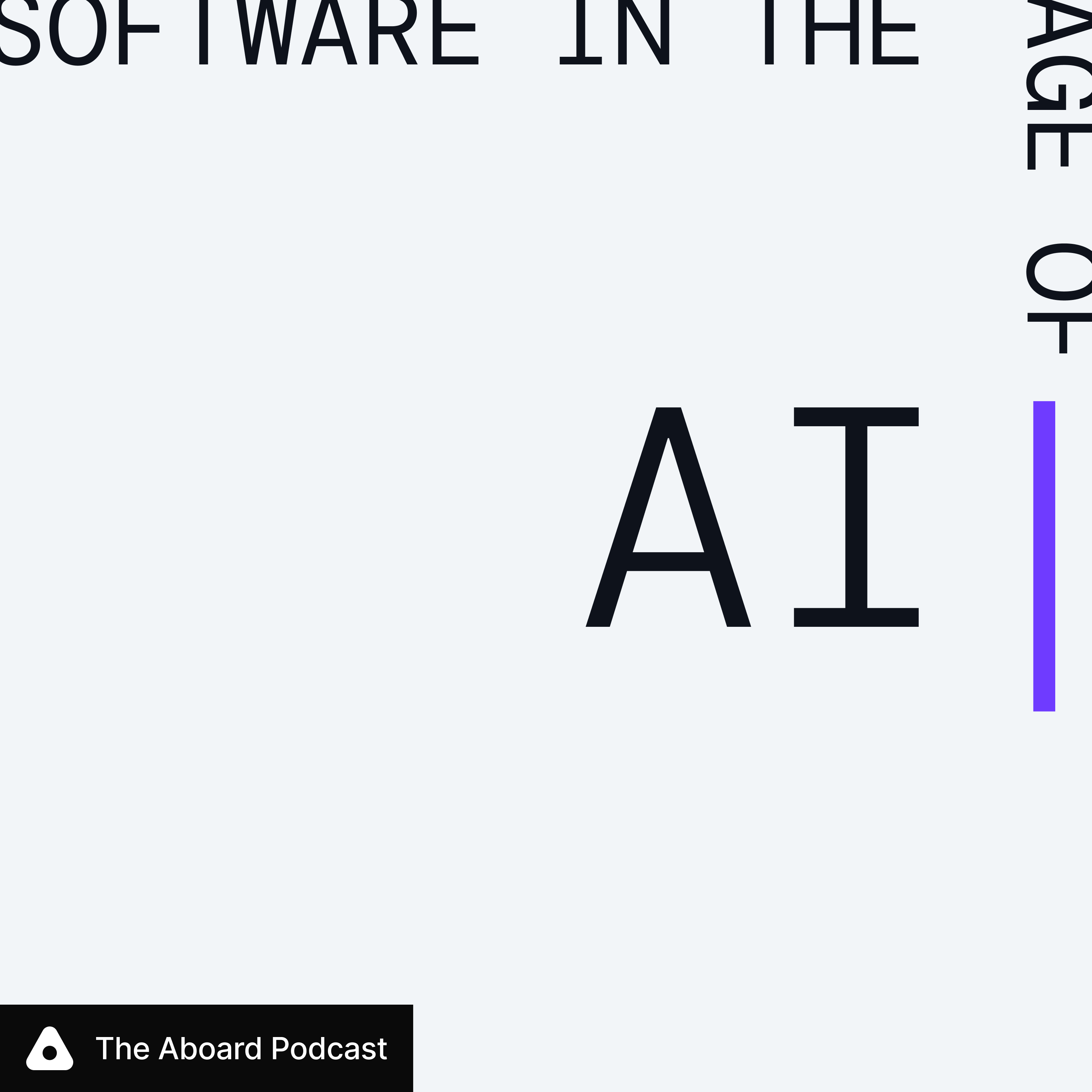

The Aboard Podcast
Aboard
Talking about AI doesn’t have to feel like the end of the world.
Join Rich Ziade, Paul Ford, and their guests as they discuss how AI is changing software development, business strategy—and everything else. New episodes every Tuesday.
Join Rich Ziade, Paul Ford, and their guests as they discuss how AI is changing software development, business strategy—and everything else. New episodes every Tuesday.
Episodes
Mentioned books

Feb 25, 2025 • 34min
AI Regulation (and Disregulation)
Is it too late to regulate AI? On this week’s Reqless, Paul and Rich assess what “regulating AI” could even mean, from controlling training data sources to moderating its ability to spread information—and disinformation. They then zero in on the question in the context of the new American administration, and Paul muses about just how long he’d like to hold his breath underwater given the current state of the news. (Five minutes? Ten?)

Feb 18, 2025 • 37min
Clay Shirky: AI for Higher Education
How is generative AI transforming the university? On this week’s Reqless, Paul and Rich sit down with someone on the front lines of AI in higher ed: Clay Shirky, a longtime educator and technologist who’s currently the Vice Provost of Educational Technologies at New York University. Clay outlines how the university’s approach to AI has shifted from semester to semester over the past few years, and then digs into the reasons why widespread student adoption of AI is worrying the faculty—and the students themselves.

Feb 11, 2025 • 32min
Waiting for the DOGE Barbarians
Government by Grok? On this week’s Reqless, Paul opens with a poetry reading (stay with us) and then he and Rich discuss the poem’s relationship to Elon Musk’s DOGE effort, currently ransacking the U.S. Treasury. The DOGE strategy seems to be “destroy without oversight, replace with AI,” which leads to two questions: Could this work? (No.) And if you are going to take a sledgehammer to bureaucracy, is there an ethical way to swing the hammer? (Eh…)

Feb 4, 2025 • 35min
AI as an Accelerant for Good
How is AI transforming the social sector? Flying solo in the Reqless hosting chair, Paul sits down with Perry Hewitt, Chief Marketing and Product Officer for Data.org, to talk about how AI tools are enhancing the projects they support. Topics discussed include what data collection can entail in the world of global nonprofits, the impact of constraints on technological problem solving, and real examples of how AI is being used right now, from healthcare settings in India to the wildfires in Los Angeles.

Jan 28, 2025 • 26min
Don’t Freak About DeepSeek
As Chinese LLM company DeepSeek makes headlines for wreaking havoc on the stock prices of the American tech sector, Paul and Rich sit down and answer the important questions: What is DeepSeek? Why does Paul feel like it’s Christmas? What does this mean for both AI and the broader industry? What does Rich think Microsoft should do with Three Mile Island now?

Jan 21, 2025 • 26min
Brains Are Better Than Butlers
AI tools are often positioned as agents, assistants, or butlers—but their potential is so much greater than that. On this week’s Reqless, Rich explains to Paul why the “agent” model gets AI all wrong. Plus: A discussion about CTOs, and the spectrum from those who are resisting the change that’s coming to those who are embracing it.

Jan 14, 2025 • 22min
Not Quite Finishing Apps
Can you actually build an app with AI right now? Fresh off a holiday break where he attempted to do just that (rather than talking to his family), Paul tells Rich what worked and what didn’t work in his experimentation: Where AI failed, where Paul got impatient, and how that mapped onto human programmers’ strengths and weaknesses. Building an entire app with AI might not be quite there yet—but is it close?

Jan 7, 2025 • 21min
We Need More Software
Does the world actually need more software? In the first Reqless of 2025, Paul and Rich skip the “AI predictions for the coming year” and instead look at the tech landscape for smaller organizations. Do they really have the tools they need to get their work done? Featuring extensive corporate roleplay—including Paul’s very believable turn as a big-firm consultant—and a meditation on New York City’s venerable commercial waste-removal industry.

Dec 17, 2024 • 28min
A Year of Chaos Concludes
Farewell 2024—a boring year in which nothing really happened! On this week’s Reqless, Paul and Rich reflect on our current moment of widespread instability, from the cultural to the political to the technological, and discuss some of the ways they try to manage it (waffles!) (also building software). And because this is an AI podcast, they look back over a year of rapid change in the space, and make predictions for what’s to come in 2025.

Dec 10, 2024 • 24min
Employees Don’t Care About AI
Executives are all-in on AI, but many workers are not: A recent survey of white-collar employees conducted by Slack shows workplace AI adoption has slowed, even stalled, in recent months. On this week’s Reqless, Paul and Rich explore the various reasons Slack’s respondents gave for their reticence and what they suggest about the current moment in tech. Is the issue the tools? Or is it how they’re being asked to use them—or if they’re being asked to use them at all.


